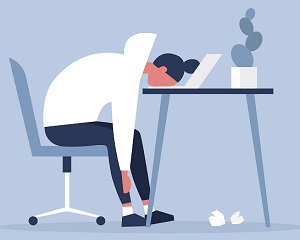How To Make Time Management Fun
by Elvira Veksler
 When most people hear the words “time management,” they don’t immediately think of fun. They think about having to do work, the hours they’ll lose doing the un-fun thing, and what they’d rather be doing (like SAP training).
When most people hear the words “time management,” they don’t immediately think of fun. They think about having to do work, the hours they’ll lose doing the un-fun thing, and what they’d rather be doing (like SAP training).
The thing about this is that it’s possible to unravel and see it in a completely different way. At Michael Management, we know this because we tested it, and it works. In fact, we’re working hard on making SAP training fun!
What is time management?
Time management is defined as “the process of planning and exercising conscious control of time spent on specific activities, especially to increase effectiveness, efficiency, and productivity,” according to Wikipedia.
Ah, the ever-elusive topic of productivity. What are its secrets? Sometimes it seems like nobody knows. Well, we happen to have listed them below.
Energy is the currency of success, not time
The first secret of time management is that working harder doesn’t, well, work. In fact, that “strategy” just leads to burnout. And nobody wants that.
To be successful, you’ll need to learn not to manage yourself and your personal energy, not your time. There are different types of energy, which include physical, emotional, mental, and spiritual energy. This isn’t rocket science.
For example, you only slept two hours and then brought yourself to work (or SAP skills training), you will probably be less productive than if you hadn’t done that, even if you somehow manage to “plan out your time” well.
Manage your Ultradian Rhythm
The Ultradian Rhythm is a recurrent period or cycle repeated throughout a 24-hour day. This means that you have natural, predictable cycles, which means that taking breaks rejuvenates your energy. When we work for more than 90 minutes at a time on say, SAP learning, this energy starts to break down.
The solution? Schedule your tasks around your energy levels instead of your time.
Want to know if you’re up to doing a task? Check your energy level, not the time or your to-do list. Map out the times your energy levels are high or low or simply unavailable.
Your most important task should ideally be done first thing in the morning, when you have the most energy (you’ve recharged and haven’t used any of your new energy yet). The menial tasks that require low levels of creativity can be done later in the day (answering e-mails, anyone?).
Kick time management to the curb
Time management literally just makes you anxious, according to this Ladders.com article. Instead of tending to your anxiety, you could be taking SAP training courses and increasing your skill set.
To mediate this, kick it to the curb entirely and watch your anxiety drop before your very eyes. Gone is the pressure to perform a certain number of hours per day (just do what works) and with it the guilt over having free time.
The real kicker? The time management method never would’ve worked anyway, no matter how many things you crossed off, because there would always be more things to add. This is a losing battle.
Not only is it a losing proposition, you’re also now procrastinating because you are human and that’s how humans work.
You scheduled too many things and now you’re going in circles. Sound familiar, anyone? Doesn’t it feel better to know that this is just the human condition?
You’re a human. It’s time that you lived like one! Which brings us to our next point…
Combine your personal life and professional lives
As humans, we really like to compartmentalize things. We carefully place different parts of us in boxes, then stand around wondering which box is actually us.
The truth is they are all us and realizing this can help you be a more grounded and productive individual.
This echoes a recent trend among young people who are “settling” for less money in exchange for greater flexibility, and vitality. It isn’t that millennials want to work less. Actually, they’re the generation most inclined to remain 'on' during off hours.
Live mindfully
Attention is fleeting. The reason? Previous, unrelated tasks leave a kind of “residue” which makes it difficult to focus on the present task.
The antidote for this, mindfulness, is defined as the practice of being aware of one’s thoughts and feelings, moment-to-moment, without getting caught up in them. Born of ancient Eastern religions (and philosophies) like Buddhism and regularly incorporated in mainstream therapy in the United States, mindfulness is a type of restorative meditation.
This means that attention has value (think of it as a price tag). One of the ways to add back value is to reduce the noise. Think of it as recharging your batteries, no matter what state your attention capacity is in.
Protect your attention
Now that you know that attention is the most expensive currency when it comes to productivity, it will make sense that rule number one is to stop looking at your device (so much). If you’re on your laptop (the second biggest culprit), keep one window open.
Make sure you keep out interruptions during your work time, find a quiet space, turn off your alerts and social media apps, and get into your mindfulness zone.
On a related note, check out this recent Michael Management blog post about how technology is affecting the learning industry.
by Elvira Veksler
More Blogs by Elvira Veksler

5 Ways How Technology Affects The Learning Industry
Technological disruption is affecting nearly every industry right now,...

Increasing Your Productivity: Finishing What You...
Productivity is kind of a big deal. Without it, we get nowhere fast. ...
Related Blogs

How To Deal With Training Overload
Online education has expanded exponentially since the 2000s, fueled by...

Increasing Your Productivity: Finishing What You...
Productivity is kind of a big deal. Without it, we get nowhere fast. ...

SAP Interview Time: Tips to communicating Your...
You just entered the interview room for a new SAP job that you think is perfect...
.png)

